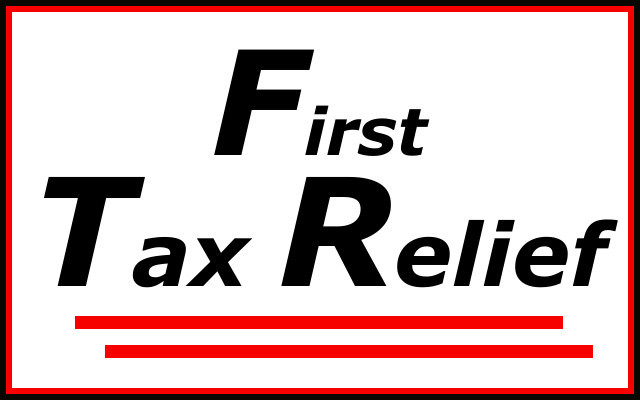The holidays are funny for Cleveland business owners. And, I must tell you, especially so for tax professionals like me.
Every year, Congress delivers updates to the tax code, seemingly at the very last minute, so my staff and I are often working over the holidays when others are not.
But you get this, I imagine. There are unique pressures to running a business and “keeping regular hours” isn’t always part of the prescription for us. Even if you set up your Cleveland business life for effective work/life balance (which is a great goal of mine), there are always those special circumstances.
And the recently signed tax reform bill definitely qualifies as “special circumstances”.
I’m beginning the process of diving into this bill on your behalf, and this week I have some time-sensitive advice, taking it into account, which can significantly affect your bottom line for this year, and the next. But I’m warning you in advance that this note is a bit long … however, I think you will see that it will be worth it.
And one more note: I’m limiting myself today to those things which might affect your behavior THIS WEEK. There will be much more to come from me down the line.
So, tax reform. It’s not my job to make political statements about this bill, but to be your guide through the mess and help you to make the right decisions for you and your Cleveland business.
I’ll start with this though: tax simplification, this is not. In fact, I saw an article the other day in a publication for tax accountants, and they referred to the bill as “The Accountants’ Full Employment Act”.
Yes, there’s a lot of talk about how taxes have gone down for about 80% of the population, and we here at First Tax Relief are obviously pleased about that on behalf of our Cleveland clients.
But “simplified” tax preparation is not something that was accomplished by this bill, especially for business owners — but really, for a majority of taxpayers.
The IRS has yet to issue actual guidance for tax professionals on these changes, and there will be many “technical corrections” still to come (the bill was passed rather quickly), but again, we DO know some things that will save you and your business some money if you take some action during this normally-slower week.
I’ve put together some big ideas that will help. The last of our tax strategies below, in particular, is one that might merit your attention. All of these are, of course, a personal decision — and we’re here for you regardless.
Shoot me an email using the email button at the top of the page or call us ((833) Low-Taxx) if you need help.
2017 Year-End Tax Strategies for Cleveland Business Owners With Tax Reform In Mind
“It is our attitude at the beginning of a difficult task which, more than anything else, will affect It’s successful outcome.” -William James
There are obviously two different tax returns that most business owners have submitted to the IRS: their business return and their personal return.
I have some quick tips on the personal side with which I will close this note (including a very interesting one at the end), but this article deals mostly with items that will affect your business tax return.
With a radically different — but sadly, not simplified — tax code for 2018, it would behoove you to sit down and make a little bit more of an effort to make some financial decisions in your Cleveland business ahead of this particular year’s end than perhaps you have in previous years — so that you can potentially save even more.
So let’s get to it, shall we?
1) Accelerate most expenses to have them count towards 2017. So, pay vendors NOW. With many new options for tax savings in 2018 and generally lower rates for pass-through entities and other brackets, it’s a GREAT idea to pre-pay some vendors and maximize your business deductions for 2017 if you have that flexibility.
2) Recognize any possible business losses before year-end. There is a reduction in the deductibility to these operating losses to 80% in 2018.
3) Try to sell any business processes or patents before year-end. As law currently stands, income from this is treated under capital gains tax standards, but will be treated as ordinary income moving forward in 2018.
4) Don’t purchase any vehicles until 2018. The depreciation rules for “luxury” autos under the new tax bill are much more favorable, and you will be able to save more by waiting.
5) Pre-pay professional fees associated with your personal finances. More about this below, but these are no longer deductible in 2018.
There are numerous other changes that will affect you moving forward, and I will keep you apprised. Notable among them is the elimination of the “business entertainment” deduction — which means, no more skyboxes for clients!
If you want to geek out a little, here’s a fairly comprehensive rundown for the business changes in the new bill: https://www.journalofaccountancy.com/news/2017/dec/tax-reform-bill-changes-for-businesses-201718071.html
Now, quickly, some things that affect you on the personal side (so I don’t neglect that area for you). I will try to keep these comments short:
A) Consider giving more to charity before year-end. You can bunch deductions, etc. for a bigger bang in 2017 because the deductibility power of these gifts are less powerful under lower marginal tax rates moving forward. Further, this is a great year to give away appreciated stocks or securities. This has two benefits: a deduction for the fair market value of the security versus getting a deduction for the lower cost basis in 2018 of up to 30 percent of adjusted gross income (or 20 percent if contributed to a private foundation); plus the capital gain on the appreciated security is not taxed.
B) Consider making an additional mortgage payment. As a business owner, you will probably still itemize your deductions on the personal return, but if not — get that benefit now while you can. Plus, there is a larger interest deduction in 2017 even if we *do* plan to itemize under the new bill. One potential pitfall: check with your lender to make sure this payment goes to interest as well as principal. Sometimes, additional payments go straight to paying down the principal — which is a great practice for saving long term on your mortgage, but which doesn’t help you with your taxes.
C) Lastly, and as I alluded to above: Consider pre-paying or making a deposit towards OUR fees. Anything that you invest with us for handling all of your personal tax preparation needs, unfortunately, is no longer tax deductible in 2018. But you can pre-pay now and still receive that value for 2017 taxes. Even if the actual fees for your return end up being different than what you actually pay, anything you pay in 2017 will be deductible on this year’s taxes (even if you are paying for services you don’t receive until 2018 or beyond).
So you get a real-life discount (in terms of tax deduction opportunities on your PERSONAL return) if you choose to invest in our services before year-end.
Send me an email using the email button at the top of the page if you are interested in this, and we will follow-up with you as needed. And if for some reason your fees end up being less than what you pay, we’d be glad to refund you the overage or hold it as a credit for future services (and in the case of maintaining the credit with us, you will keep the deduction!).
I hope this helps. Again, I apologize that this is a bit of a longer note, especially for the “last-minute tax tips” subject. And there are potentially other, less common moves that might make sense for certain of our Cleveland clients.
But from one Cleveland business owner to another: we’re in your corner.
Feel very free to forward this article to a Cleveland business associate or client you know who could benefit from our assistance — or simply send them our way? While these particular articles usually relate to business strategy, as you know, we specialize in tax preparation and planning for Cleveland families and business owners. And we always make room for referrals from trusted sources like you.
Warmly,
Rich Rhodes
(833) Low-Taxx
First Tax Relief






